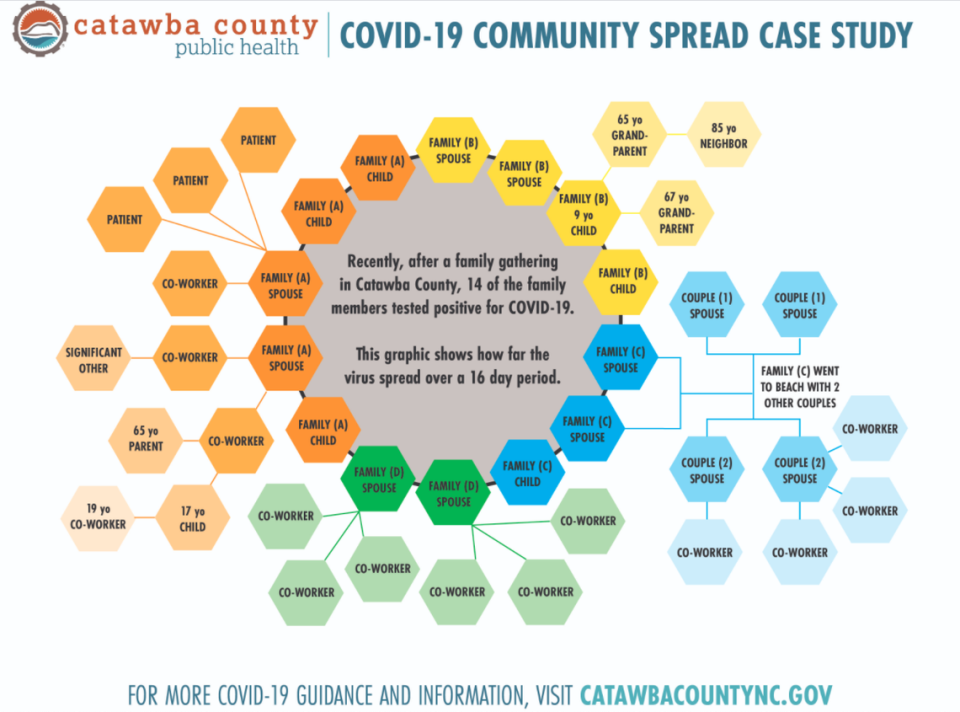Family gathering infects 41 people with the coronavirus, NC health official says
The number of laboratory-confirmed coronavirus cases in one North Carolina — like much of the state — is spiking.
It’s not just due to increased testing, health officials say.
“The reality is this: more people are getting sick in Catawba County,” County Public Health Director Jennifer McCracken said in a news release Thursday. “This has been largely driven by the spread of COVID-19 from infected individuals, most of whom were not yet aware they were sick, to people they know.”
Catawba County, about 45 minutes northwest of Charlotte off Lake Norman, has reported 1,105 cases of the coronavirus and 13 deaths, N.C. Department of Health and Human Services’ data show.
According to one recent case study by the county health department, a single family gathering was responsible for at least 40 of those cases.
More than two dozen people were reportedly in attendance.
“Folks did not wear masks or observe physical distancing at this gathering, and 14 people who attended subsequently tested positive for COVID-19,” McCracken said.
The family members went about their daily lives before they started showing symptoms — which can appear anywhere from two to 14 days after exposure, according to the U.S. Centers for Disease Control and Prevention. That included going to work and “taking a beach trip with other families,” according to the release.
“This set into motion a person-to-person contact chain that to date has spread COVID-19 to 41 people in 9 different families and 8 different workplaces,” McCracken said.
A graphic published by the county health department illustrates the spread.

Two of the families who attended the party and later tested positive for the coronavirus returned to work afterward, infecting at least nine of their co-workers, the contact tracing map shows. Those co-workers subsequently infected their parents, kids and spouses.
The child of a third family in attendance who tested positive infected two grandparents and their neighbor. At 65, 67 and 85, all three are considered high-risk to develop serious symptoms from the illness, according to the CDC.
A couple in the fourth family who contracted the virus went on a beach trip with two other couples before testing positive, Catawba County officials said. Both couples were infected, one of which passed the virus to four coworkers.
McCracken said she is sharing the example to show how easily the coronavirus spreads and what preventative measures like wearing masks or frequent hand-washing can do to prevent it.
“It’s not hard to prevent the spread COVID-19,” she said. “What’s hard is having to call 20, 30, 40 people a day and tell them that not only are they sick with an untreatable illness, but they are also required to isolate themselves from others, including their loved ones, and stay home from work for two weeks or until they recover.”

